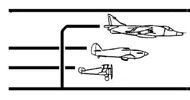| Name: | |
| Michael Frain | |
| Transcript: 5 | |
| Contractor control | |
Gaining greater control over contractors working on the Kingston site was part of the necessary modernization of factory practices. As in the example in the clip, it did not always go to plan!Now contractor control was a big issue because we had… Sorry, can you just explain contractor control is. I will. Contractor control was from the moment you identified that you couldn’t do the work in-house but somehow you had to convey it to the contractors. Now we had a very good purchasing department, buying department, and most things had to go through them so that they could be competitively tendered. So that, if you wanted to make any change or introduce new ways, because you were going to contract the work out, it meant that you had to then identify what you wanted done, turn it into a specification – which often required drawings and detail to be put down – and that would go out to tender. And then there would be tender evaluation. Now, sadly – and I think it’s just the same today – there are contractors that will tell you they can do everything but once they get the contract fail to deliver. A good example was the metal treatments facility, which was, some said, the world’s most complex, that we introduced to Kingston. It was a major project. At the time we thought it was better to hand that out to a contractor that was well accustomed to the range of chemicals that were being employed, and the techniques and the safety aspect – rather than to try and train up our own people in the maintenance of this particular plant. The tenders were received for the work, having produced a hefty specification, and on the first few days of the new maintenance contractor, having selected them, working on-site, one of my Supervisors came along to me – a chap named Mel Mosworthy – and he said, “I don’t think they know anything about maintaining the plant.” So we set up an investigation and we found that the guy that was actually doing the maintenance or trying to do the maintenance, was a YTS [Youth Training Scheme] – a young trainee from Liverpool, had never been in a plant before. The contractor thought he could get away with it. So that presented us with a problem because it destroyed our faith in the company and we had to then search very quickly – and in fact some of the work was then taken in-house because it was easier to train and to control our own people. But often, the problem I found, and I was accused sometimes, but I accept – the ‘devil was in the detail’. And they would say sometimes ‘Oh, you are looking at the detail’, but in fact it is in the detail that you find that things are either right or not right. |
|


